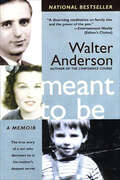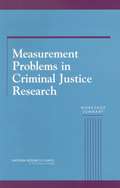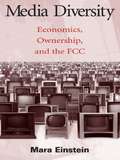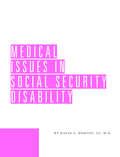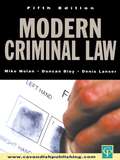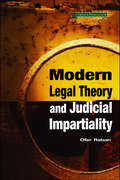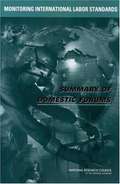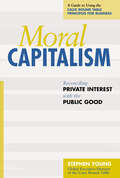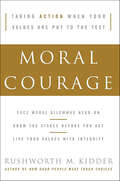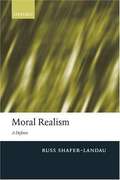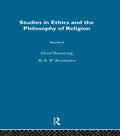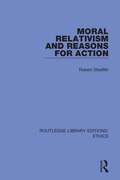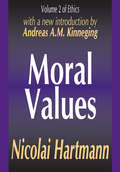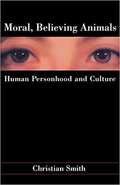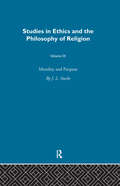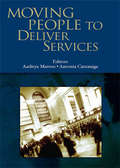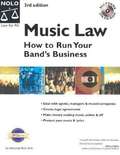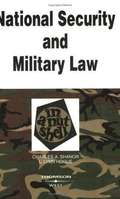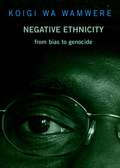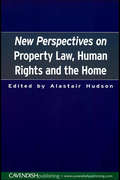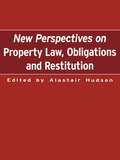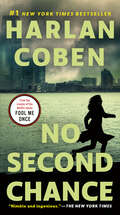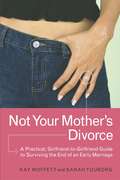- Table View
- List View
Meant To Be: A Memoir
by Walter AndersonPublished to strong reviews and major media attention, this heartfelt and inspirational rags-to-riches memoir by the highly regarded CEO of Parade Publications tells the emotional story of how he came to terms with an identity and a family that he never knew he had until he reached middle age.Meant To Be begins when Anderson, a 21-year-old Marine returns from service to say goodbye to his dying father and tries to find the answer to a question that has inexplicably haunted him from his earliest years: Was the alcoholic, abusive man who has so tormented him in his childhood his real father? Shockingly, the answer turns out to be "No." Unbeknown to him, at least until that point, his mother, a German Protestant, fell in love during World War II with a Russian Jew and bore his child. Anderson learns this information as a young man but he and his mother keep this secret for another 35 years, until the day Anderson—now an unusually successful publishing executive—meets an unknown brother who, it turns out, has lived a nearly parallel life. Meant To Be is a love story, a journey of self-discovery and spirituality, and a provocative challenge to common notions about the role of heredity in our lives.
Measurement Problems in Criminal Justice Research: WORKSHOP SUMMARY
by John V. PepperMost major crime in this country emanates from two major data sources. The FBI's Uniform Crime Reports has collected information on crimes known to the police and arrests from local and state jurisdictions throughout the country. The National Crime Victimization Survey, a general population survey designed to cover the extent, nature, and consequences of criminal victimization, has been conducted annually since the early 1970s. This workshop was designed to consider similarities and differences in the methodological problems encountered by the survey and criminal justice research communities and what might be the best focus for the research community. In addition to comparing and contrasting the methodological issues associated with self-report surveys and official records, the workshop explored methods for obtaining accurate self-reports on sensitive questions about crime events, estimating crime and victimization in rural counties and townships and developing unbiased prevalence and incidence rates for rate events among population subgroups.
Media Diversity: Economics, Ownership, and the Fcc (Routledge Communication Series)
by Mara EinsteinMedia Diversity: Economics, Ownership, and the FCC provides a detailed analysis of the regulation of diversity and its impact on the structure and practices within the broadcast television industry. As deregulation is quickly changing the media landscape, this volume puts the changing structure of the industry into perspective through the use of an insider's point of view to examine how policy and programming get made. Author Mara Einstein blends her industry experience and academic expertise to examine diversity as a media policy, suggesting that it has been ineffective and is potentially outdated, as study after study has found diversity regulations to be wanting. In addition to reviewing diversity research on the impact of minority ownership, regulation of cable and DBS, duopolies, ownership of multiple networks and cross ownership of media on program content, Einstein considers the financial interest and syndication rules as a case study, due to their profound effects on the structure of the television industry. She also poses questions from an economic perspective on why the FCC regulates structure rather than content. Through the presentation of her research results, she argues persuasively that the consolidation of the media industry does not affect the diversity of entertainment programming, a conclusion with broad ramifications for all media and for future research about media monopolies. This volume serves as a defining work in its examination of the intersection of regulation and economics with media content. It is appropriate as a supplemental text in courses on communication policy, broadcast economic and media management, broadcast programming, political economy of the mass media, and media criticism at the advanced and graduate level. It is also likely to interest broadcast professionals, media policymakers, communication lawyers, and academics. It is a must-read for all who are interested in the media monopoly debate.
Medical Issues in Social Security Disability
by David MortonAuthor Dr. David Morton has personally made more than 50,000 disability determinations for the Social Security Administration. As a Chief Medical Consultant, he hired, trained, supervised, and evaluated the work of both medical doctors and clinical psychologists. Now, Dr. Morton has made his expertise available to claimants' representatives with Medical Issues in Social Security Disability, a revealing and practical look inside the SSA's medical evaluation system. This comprehensive book explains how the SSA interprets key Listings: * What symptoms, physical signs, laboratory test abnormalities, and regimen response are needed to qualify, * The medical data which should be included in the claimant's file to obtain a favorable decision, and * Common issues faced by the claimant or the SSA, with a heavy focus on residual functional capacity. The book is filled with nuggets about shortcomings in submitted medical records, the types of mistakes adjudicators are most likely to make, where generous allowances are provided claimants, ailments and tests frequently overlooked by treating doctors, and much more.
Mixed Race America and the Law
by Kevin R. JohnsonFor the first time in United States history, the Year 2000 census allowed people to check more than one box to identify their race. This new way of gathering data and characterizing race and ethnicity reflects important changes in how racial identity is understood in America. Besides acknowledging the presence of mixed race citizens, this new understanding promises to have major implications for American law and policy.With this anthology, Kevin R. Johnson brings together ground-breaking scholarship on the mixed race experience in America to examine the impact of law on these citizens. The foundational essays that comprise the collection present the historical, social, and political contexts surrounding the body of law that addresses race while analyzing the implications of multiracialism. Divided into 12 sections, the reader includes an introduction by Johnson and essential essays by contributors such as Garrett Epps, Judith Resnick, Richard Delgado, Ian Haney-López, Randall Kennedy, and Patricia Hill Collins. Selections address miscegenation, racial classification, interracial adoption, the 2000 census, "passing," and other topics; each section includes questions to promote further discussion. This book is an invaluable resource for examining the complexities of racial categories in modern America.
Modern Criminal Law: Fifth Edition
by Mike MolanThis book provides a clear, concise and highly accessible overview of the key aspects of criminal law doctrine as it applies in England and Wales. The content has been revised and updated, reflecting the constantly evolving nature of the subject.
Modern Legal Theory & Judicial Impartiality
by Ofer RabanThis book argues that at the core of legal philosophys principal debates there is essentially one issue judicial impartiality. Keeping this issue to the forefront, Raban's approach sheds much light on many difficult and seemingly perplexing jurisprudential debates. Modern Legal Theory and Judicial Impartiality offers a fresh and penetrating examination of two of the most celebrated modern legal theorists: HLA Hart and Ronald Dworkin. The book explains the relations between these two scholars and other theorists and schools of thought (including Max Weber, Lon Fuller, and the law and economics movement), offering both novices and experts an innovative and lucid look at modern legal theory. The book is written in an engaging and conversational style, tackling highly sophisticated issues in a concise and accessible manner. Undergraduates in jurisprudence and legal theory, as well as more advanced readers, will find it clear and challenging.
Monitoring International Labor Standards: Summary of Domestic Forums
by Roger G. McelrathSince 1943, Recommended Dietary Allowances (RDAs) has been recognized as the most authoritative source of information on nutrient levels for healthy people. Since publication of the 10th edition in 1989, there has been rising awareness of the impact of nutrition on chronic disease. In light of new research findings and a growing public focus on nutrition and health, the expert panel responsible for formulating RDAs reviewed and revised its approach -- the result: Dietary Reference Intakes. This new series of references greatly extends the scope and application of previous nutrient guidelines. The first volume includes calcium, magnesium, phosphorus, vitamin D, and fluoride. For each nutrient the committee presents what is known about how the nutrient functions in the human body, which factors (caffeine or exercise, for example) may affect how it works, and how the nutrient may be related to chronic disease. Based on analysis of nutrient metabolism in humans and data on intakes in the U. S. population, the committee recommends intakes for each age -- from the first days of life through childhood, sexual maturity, midlife, and the later years. Recommendations for pregnancy and lactation also are made, and the book identifies when intake of a nutrient may be too much. Dietary Reference Intakes provides three sets of measures for each nutrient in the volume: -- Estimated Average Requirements (EARs), estimated for age and gender categories. -- Recommend
Moral Capitalism: Reconciling Private Interest with the Public Good
by Stephen YoungShows how to ensure that capitalism promotes progress and equality rather than enriching the few at the expense of many Based on principles developed by the Caux Round Table, an international network of senior business executives from such companies as 3M, Canon, NEC, Bankers Trust, Shell, Prudential, and dozens of other companies Provides practical guidelines for corporate social responsibility through the Caux Round Table's Seven General Principles for Business The world is drifting without a clear plan for its economic development. Communism is dead, but in the wake of Enron and similar scandals, many see capitalism as amoral and too easily abused. A blueprint for progress is needed and Moral Capitalism provides one. Moral Capitalism is based on principles developed by the Caux Round Table, an extraordinary international network of top business executives who believe that business can-and must-weigh both profit and principle. Caux Round Table's global chair, Stephen Young, argues that the ethical standards inherent in capitalism have been compromised by cultural values inimical to capitalism's essentially egalitarian, rational spirit, and distorted by the short-sighted dog-eat-dog doctrines of social Darwinism into what he calls brute capitalism. He demonstrates how the Caux Round Table's Seven General Principles for Business can serve as a blueprint for a new moral capitalism, and explores in detail how, if guided by these principles, capitalism is really the only system with the potential to reduce global poverty and tyranny and address the needs and aspirations of individuals, societies, and nations.
Moral Courage
by Rushworth M. KidderWhy did a group of teenagers watch a friend die instead of putting their own reputations at risk? Why did a top White House official decide to come clean and accept a prison sentence during Watergate? Why did a finance executive turn down millions out of respect for her employer? Why are some willing to risk their futures to uphold principles? What gives us the strength to stand up for what we believe?As these questions suggest, the topic of moral courage is front and center in today's culture. Enron, Arthur Andersen, the U.S. Olympic Committee, abusive priests, cheating students, domestic violence -- all these remind us that taking ethical stands should be a higher priority in our culture. Why, when people discern wrongdoing, are they sometimes unready, unable, or unwilling to act?In a book rich with examples, Rushworth Kidder reveals that moral courage is the bridge between talking ethics and doing ethics. Defining it as a readiness to endure danger for the sake of principle, he explains that the courage to act is found at the intersection of three elements: action based on core values, awareness of the risks, and a willingness to endure necessary hardship. By exploring how moral courage spurs us to strive for core values, he demonstrates the benefits of ethical action to the individual and to society -- and the severe consequences that can result from remaining morally dormant.Moral Courage puts indispensable concepts and tools into our hands, equipping us to respond to the increasingly complicated moral challenges we face at work, at home, and in our communities. It enables us to make clear, confident decisions by exploring some litmus-test questions:Is the benefit worth the risk?Am I motivated by my desire to uphold my beliefs or just to impose them on others?Will my actions create collateral damage among those with no stake in the outcome?While physical courage may no longer be a necessary survival skill or an essential rite of passage out of childhood, few would dispute the growing need for moral courage as the true gauge of maturity. Treating this subject not as an esoteric branch of philosophy but as a practical necessity for modern life, Kidder deftly leads us to a clear understanding of what moral courage is, what it does, and how to get it.
Moral Realism: A Defence
by Russ Shafer-LandauMoral Realism is a systematic defence of the idea that there are objective moral standards. Russ Shafer-Landau argues that there are moral principles that are true independently of what anyone, anywhere, happens to think of them. His central thesis, as well as the many novel supporting arguments used to defend it, will spark much controversy among those concerned with the foundations of ethics.
Moral Reasoning Vol 2 (Studies In Ethics And The Philosophy Of Religion)
by R. W. BeardsmoreFirst published in 2003. Routledge is an imprint of Taylor & Francis, an informa company.
Moral Relativism and Reasons for Action
by Robert StreifferOriginally published in 2003, this book examines moral relativism and the author discusses the main arguments for Appraiser Relativism and Agent Relativism. The final chapter of the book discusses the implication of some recent developments in metaethics and develops a theory of reasons for action based on the way in which an action can be good as an alternative to the desire-based, agent-centred account critiqued in the earlier chapters.
Moral Values (Ethics Ser.)
by Nicolai HartmannNicolai Hartmann (1882-1950), along with Henri Bergson and Martin Heidegger, was instrumental in restoring metaphysics to the study of philosophy. Unlike his contemporaries, however, Hartmann was clearly influenced by Plato. His tour-de-force, Ethik, published in English in 1932 as Ethics, may be the most outstanding work on moral philosophy produced in the twentieth century.In the first part of Ethics (Moral Phenomena), Hartmann was concerned with the structure of ethical phenomena, and criticized utilitarianism, Kantianism, and relativism as misleading approaches. In the second part, Moral Values, the author describes all values as forming a complex and as yet imperfectly known system. The actualization of the non-moral and elementary moral values is a necessary condition for the actualization of the higher values. It is on this account that rudimentary values have a prior claim.Hartmann outlines the main features of the chief virtues, and shows that the moral disposition required in any exigency is always a specific synthesis of various and often conflicting values. Specifically describing fundamental moral values-such as goodness, nobility, and vitality-and special moral values-such as justice, wisdom, courage, self-control, trustworthiness, and modesty-Hartmann takes theoretical philosophy and brings it very much into the realm of the practical.A compelling and insightful volume, Moral Values remains an essential contribution to the moral and ethical literature of the twentieth century. Hartmann offers a self-contained system of ethics that yet offers a conservative outlook on social life.
Moral, Believing Animals: Human Personhood and Culture
by Christian SmithWhat kind of animals are human beings? And how do our visions of the human shape our theories of social action and institutions? InMoral, Believing Animals, Christian Smith advances a creative theory of human persons and culture that offers innovative, challenging answers to these and other fundamental questions in sociological, cultural, and religious theory. Smith suggests that human beings have a peculiar set of capacities and proclivities that distinguishes them significantly from other animals on this planet. Despite the vast differences in humanity between cultures and across history, no matter how differently people narrate their lives and histories, there remains an underlying structure of human personhood that helps to order human culture, history, and narration. Drawing on important recent insights in moral philosophy, epistemology, and narrative studies, Smith argues that humans are animals who have an inescapable moral and spiritual dimension. They cannot avoid a fundamental moral orientation in life and this, says Smith, has profound consequences for how sociology must study human beings.
Morality & Purpose Vol 9
by J. L. StocksFirst published in 2003. Routledge is an imprint of Taylor & Francis, an informa company.
Moving People to Deliver Services
by Aaditya Mattoo Antonia CarzanigaThe WTO is today dealing with an issue that lies at the interface of two major challenges the world faces, trade liberalization and international migration. Greater freedom for the "temporary movement of individual service suppliers" is being negotiated under the General Agreement on Trade in Services (GATS). Conditions in many developed economies-ranging from aging populations to shortages of skilled labor-suggest that this may be a propitious time to put labor mobility squarely on the negotiating agenda. Yet there is limited awareness of how the GATS mechanism can be used to foster liberalization in this area of services trade. At the same time there is great concern, about the possible social disruption in host countries and brain drain from poor countries. As a first step in improving our understanding of the implications of such liberalization, this volume brings together contributions from service providers, regulators, researchers and trade negotiators. They provide different perspectives on one central question: how is such liberalization best accomplished, in a way that benefits both home and host countries? The result, combining insights from economics, law and politics, is bound to be a vital input into the WTO services negotiations as well as the broader debate on the subject.
Music Law: How to Run Your Band's Business (3rd edition)
by Richard StimStim, a musician and intellectual property attorney, explains the business side of running a band from a legal perspective. He discusses band partnerships and agreements, management, attorneys, equipment, performance and touring, copyright and song ownership, publishing, band names and trademarks, album artwork issues, recording and manufacturing issues, music distribution, independent record agreements, and taxes. This edition covers downloads and other internet issues.
My Mother's Witness: The Peggy Morgan Story
by Carolyn HainesPeggy thought marriage would deliver her from the poverty and abuse of childhood in rural Mississippi. but she did not know, that she would be exposed to racial violence in the Civil Rights Movement.
National Security and Military Law in a Nutshell
by Charles A. Shanor L. Lynn HogueThis book provides authoritative coverage of the Constitution and national security, entering the military, and service members' rights. Text also discusses the military criminal justice system, discharge, and compensation for injury or death. An ideal overview for practitioners, law students in specialized courses, cadets at military academies or in college ROTC programs, and lawyers preparing to enter the Judge Advocate General's Corps.
Negative Ethnicity: From Bias to Genocide
by Koigi Wa Wamwere"Negative ethnicity" is Koigi wa Wamwere's name for the deep-seated tensions in Africa that the world has seen flare so terrifyingly. The genocide in Rwanda and "ethnic" killing in the Democratic Republic of Congo, Nigeria, and elsewhere stand out as examples. Wa Wamwere argues that these clashes cannot properly be described as ethnically motivated; ethnicity, a positive distinction, has nothing of the hatred here at work. Negative Ethnicity gives a new picture of the force behind untold deaths on the continent, dispelling the myth of an intractable conflict waged along simple, ancient lines.Negative Ethnicity explains the roots, colonial and pre-colonial, of the current "ethnic" tensions. It goes on to describe how, for most Africans, ethnic identity is ambiguous, and analyzes why that fact is obscured. The culprits are many: chronic poverty, a broken education system, preying dictators, corrupt officials, the colonial legacy of hate, the ongoing exploitation of the West.Negative Ethnicity is both a history and a manual for change, intended to introduce Westerners to the crisis and to give Africans a new understanding of it. Perhaps never before has the problem been addressed with such clarity and insight.
New Perspectives on Property Law: Human Rights and the Family Home
by Alastair HudsonThe essays in this collection consider the fundamental concepts of property and obligations in law. Ideas of property and of obligations are central, organising concepts within law but are nevertheless liable to fragmentation and esoteric development when applied in particular contexts.
New Perspectives on Property Law: Obligations and Restitution
by Alastair HudsonFirst published in 2003. Routledge is an imprint of Taylor & Francis, an informa company.
No Second Chance
by Harlan CobenWhen the first bullet hit my chest, I thought of my daughter... Dr. Marc Seidman has been shot twice, his wife has been murdered, and his six-month-old daughter has been kidnapped.<P><> When he gets the ransom note-he knows he has only one chance to get this right. But there is nowhere he can turn and no one he can trust.
Not Your Mother’s Diworce: A Practical, Girlfriend-to-Girlfriend Guide to Surviving the End of an Early Marriage
by Kay Moffett Sarah TouborgNo matter what your age, divorce is one of life's greatest challenges. But while your parents, friends, and lawyers may be chock-full of advice, the truth is that young women who divorce today face a brand-new set of issues and possibilities far removed from those of women a generation before. If you're looking for a fresh, empowering, and thoroughly modern guide to starting this new chapter of your life, Not Your Mother's Divorce offers the ultimate roadmap--from wading through legal jargon to getting back into society--as told by your best girlfriends who've been there. Based on the experiences of more than thirty women who divorced in their twenties and thirties without children, Not Your Mother's Divorce offers camaraderie and practical counsel on:Breaking the news to family and friendsCoping with sudden singledom--from living arrangements to changing your nameProtecting yourself financially and dividing your assetsLegalese 101--making the legal process work for youReentering the dating sceneHow to handle encounters with your exWarm and insightful, Not Your Mother's Divorce gives you the tools to find your way through this difficult time--and emerge a stronger, wiser, happier you.From the Trade Paperback edition.
